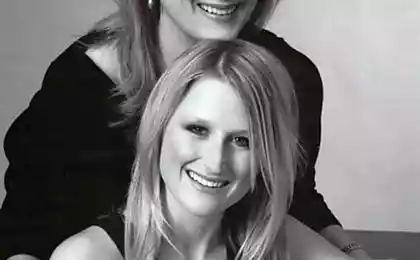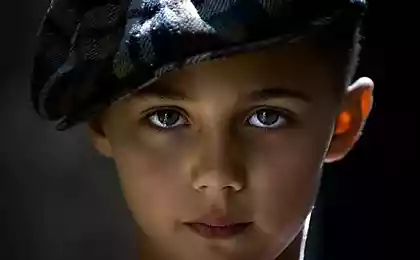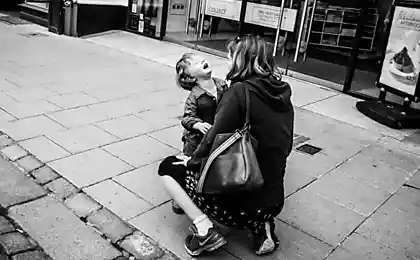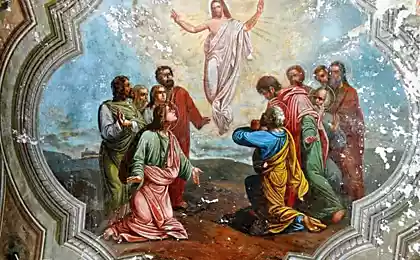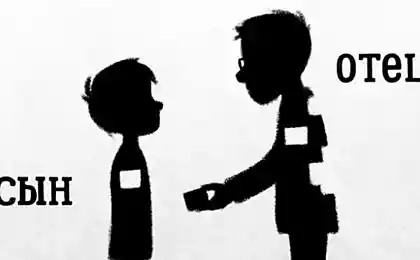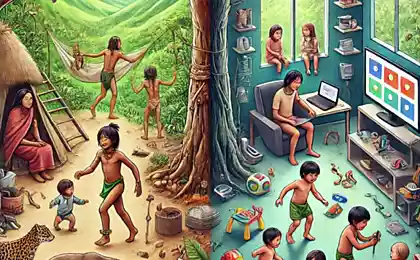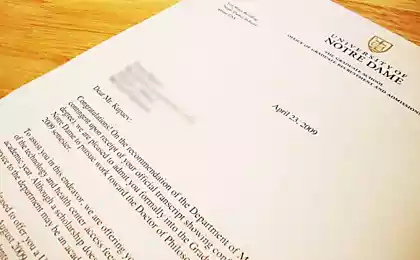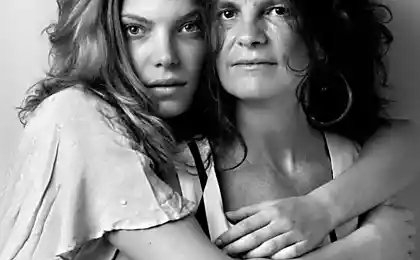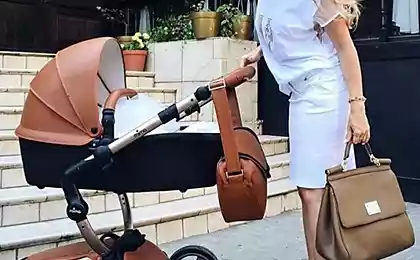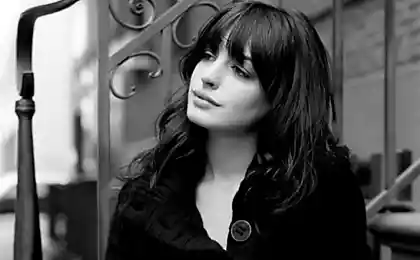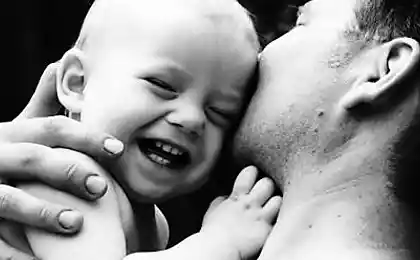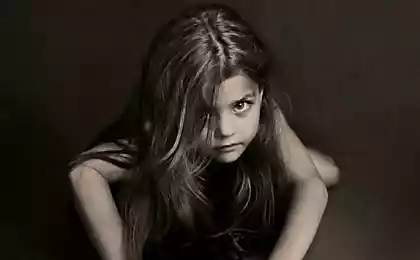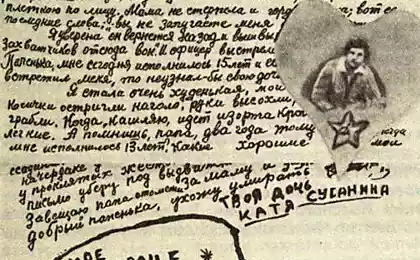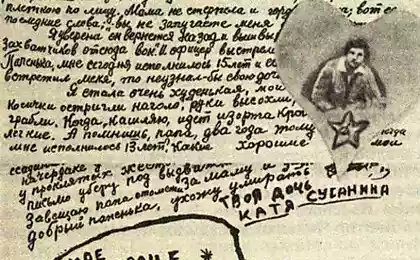853
The last letter to his mother's son
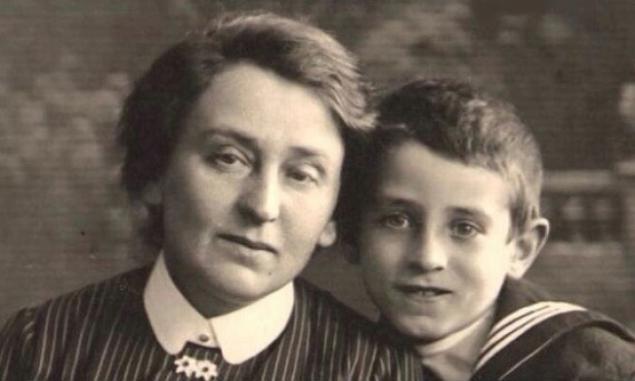
«This letter is not easy to break, it - my last conversation with you, and, crossing the letter, I finally leaving you" .Ekaterina Savelievna Vitis, the mother of the writer Vasily Grossman, 1941 he wrote him a farewell letter that he is incorporated into the novel "Life and Fate" as the last message of the mother of Victor Shtrum.
Everyone should read it. It is a monument of motherly love, fortitude and confront the horrors of fascism.
- Victor, I'm sure my letter will reach you, though I'm behind the front lines and behind the barbed wire of the Jewish ghetto. Your answer, I'll never get, I will not. I want you to know about my last days with this idea easier for me to leave this life.
People, Victor, is difficult to understand really ... seventh of July the Germans entered the city. In the city park radio aired newscast. I went from the hospital after taking ill and stopped to listen. Announcer read in Ukrainian article about combat. I heard distant gunfire, then ran through the garden people. I went to the house and all wondered how it missed the air-raid alarm. And suddenly I saw a tank and someone shouted: "The Germans have broken through!" I said, "Do not sow panic." The day before I came to the secretary of the City Council, asked him about leaving. He was angry: "It is too early to say, we were not even list" ... In short, it was the Germans. Throughout the night the neighbors visited each other, quieter all had small children and me. I decided - that is all it will be with me. At first I was terrified, I realized that never see you again, and I longed to again see you, kiss your forehead, eyes. And then I thought - after all the happiness that you're safe.
In the morning I fell asleep and when I woke up, I felt a terrible sadness. I was in his room, in his bed, but felt like a foreign country, lost one. This morning I was reminded of the forgotten during the years of Soviet power, that I was Jewish. The Germans drove the truck and shouted: «Juden kaputt!» And then I was reminded of this some of my neighbors. The wife of the janitor stood under my window and told a neighbor: "Thank God, the Jews end." Where is it from? Her son is married to a Jewish woman, and the old woman went to visit her son, telling me about her grandchildren. A neighbor of mine, a widow, in her little girl of 6 years, Alyonushka, blue, beautiful eyes, I'll write about it when something came to me and said, "Anna Semyonovna, ask you in the evening to clear things up, I get over to your room" . "Okay, then I'll move to your" - I said. She replied, "No, you will move into the closet off the kitchen." I refused: there is no window, no stove. I went to the clinic and when I came back, it turned out: the door to my room broke, my stuff piled in the closet. A neighbor told me: "I keep the sofa, he still will not fit in your new little room." Surprisingly, she had finished college, and her late husband was a nice and quiet man, an accountant in Ukopspilke. "You are an outlaw," - she said in a tone as if she is very profitable. And her daughter Alyonushka sat me all night, and I told her tale. It was my new home, and she did not want to go to bed, the mother took her in her arms. And then, Vitenka, our clinic reopened, and me and another Jewish doctor dismissed. I asked for money for the month of work, but the new head told me: "Let your Stalin pays for what you have earned during the Soviet period, write it in Moscow." Maroussia nurse gently hugged me and wailed, "My God, my God, that you will, that all of you will ..." And Dr. Tkachev shook my hand. I do not know, it's hard: schadenfreude, or pitying glances look on die, mangy cat. I did not think that I will have to go through all this.
Many people struck me. And not just dark, angry, illiterate. That old teacher, retired, his 75 years, he was always asking about you, asked to convey greetings, talking about you: "He is our pride." And these days you cursed, having met me, said hello, looked away. And then I was told that he had a meeting at the commandant's office said: "The air was clean, no smell of garlic." Why would he - in fact, these words of his spoil. And at the same meeting as slander against the Jews it was ... But Vitenka, of course, not all went to the meeting. Many refused. And, you know, in my mind since tsarist times antisemitism is associated with jingoism of people from the "Union of the Archangel Michael." And here I saw - the ones that cry for deliverance of the Jews from Russia, humiliated in front of the Germans, in servile pathetic, ready to sell Russia for thirty pieces of silver to the German. A dark people from the suburbs go rob, seize the apartment, blankets, dresses; They are probably the doctors killed during the cholera riots. And there are people mentally sluggish, they assent to the whole bad, if only they were not suspected of disagreement with the authorities. To me constantly resorted familiar with the news, all eyes were crazy, people delirious. There was a strange expression - "perepryatyvat things." It seems that a neighbor reliable. Concealment of things reminds me of the game. Shortly we announced the resettlement of Jews allowed to take 15 kilos of things. On the walls hung zhёltenkie obyavlenitsa - "Everyone is invited to resettle the Jews in the Old Town not later than six o'clock in the evening July 15, 1941. Expatriate - shot ».
Well, Vitenka, and I gathered. I took the pillow with a little linen, a cup, which you did once gave, spoon, knife, two plates. How much do you need a man? She took a few medical instruments. I took your letters, photos of the deceased mother and uncle David, and the one where you and Dad filmed, a volume of Pushkin, «Lettres de Mon moulin», a volume of Maupassant where «One vie», glossary and took Chekhov, where "A Boring Story" and "bishop." That, it turned out that I filled my whole basket. What I'm under this roof you wrote letters, how many hours of the night crying, now I'll tell you about his loneliness. Just a house with a garden, a few minutes sat under a tree, just a neighbor. Strange arranged some people. Two neighbors when I began to argue about who will take a chair, who is writing table, and began to say goodbye to them, both wept. Ask neighbors Basanko if after the war, you will come to know about me, let him tell me more, and I was promised. I touched my dog, mongrel Toby, last night somehow particularly gracious to me. If you come, you Feed her for a good attitude to the old Jewess. When I was going on a journey, and thought, as I drag cart to the old city, suddenly came to my patient Schukin gloomy and, as I thought, callous people. He undertook to bear my things, gave me three hundred rubles and said it would be once a week to bring me bread to the fence. He works in a printing house, the front was not taken for eye disease. Before the war, he treated me, and if I had to list the people with responsive, pure soul, - I would call dozens of names, but not his. Know Vitenka, after he came back, I felt like a man who means to me not only a yard dog may be treated humanely. He told me that the city printing house printed the order that Jews are forbidden to walk on the sidewalks. They have to wear a yellow lat in the form of a six-pointed star. They have no right to use transport, baths, attending outpatient clinics, going to the cinema, it is prohibited to buy butter, eggs, milk, fruit, white bread, meat, all vegetables, excluding potatoes. Shopping at the market is allowed to do just after six o'clock in the evening (when the peasants are leaving from the market). The old town is enclosed with barbed wire, and the output of wire is prohibited, you can only under escort to forced labor. If you find a Jew in the Russian house owner - shot as a shelter for the guerrilla. Father-Shchukin, an old peasant who came from the nearby town Chudnova and saw with my own eyes that all local Jews to the nodes and trunks driven into the woods, and from there throughout the day heard shots and screams, no one came back. But the Germans, who were at the apartment in-law, arrived late at night - drunk and still drinking until morning, when the old man sang and shared between brooches, rings, bracelets. I do not know whether it is random or arbitrary harbinger of the fate awaiting us?
How sad was my way, my son, in the medieval ghetto. I walked around the city, where she worked for 20 years. First we walked along the deserted street candlestick. But when we went to St. Nicholas, I saw hundreds of people on their way to this accursed ghetto. The street was white from the nodes of the pillows. Patients were under arms. Dr. Margulis's paralyzed father carried on a blanket. One young man was carrying in his arms the old woman, and behind him were his wife and children, loaded nodes. Grocery store manager Gordon, thick, with shortness of breath, went in a coat with a fur collar, and his face sweat flowed. He surprised me a young man, he went without things looking up, holding an open book in front of him, with a haughty and calm person. But how close was insane, full horror. We walked along the pavement, and stood on the sidewalk and people watched. One time I went to Margulis and heard sympathetic sighs women. And over Gordon in the winter coat laughed, though, believe me, it was terrible, not funny. I saw many familiar faces. Some slightly nodded to me, saying goodbye, others turned away. It seems to me in this crowd was not indifferent eye; We were curious, were ruthless, but a few times I saw her tear-stained eyes.
I looked - two crowds, the Jews in a coat, hat, women warm shawls, and the second the crowd on the sidewalk dressed in summer. Light jackets, men without jackets, some in Ukrainian embroidered shirts. It seemed to me that the Jews walking along the street, and the sun had already refused to shine, they are among the cold December night. At the entrance to the ghetto, I said goodbye to my partner, he showed me a place at the wire fence, where we will meet. Know Vitenka that I experienced, once the wire? I thought I feel terrible. But imagine the corral I was relieved. I do not think, not because I have the soul of a slave. No. No. Around me were people of the same fate, and in the ghetto, I should not be like a horse, walking on the pavement, and there is no wickedness in the eyes of, and familiar people look me in the eye and do not avoid meeting with me. This feedlot are all printed, delivered to us by the Nazis, so there is not so burns my soul this seal. Here, I can not feel powerless cattle and unhappy man. From this it became easier.
I stayed with a colleague, Dr. Sperling therapist in Mazanov house two small rooms. Sperling have two grown daughters and a son, a boy of twelve. I look at his long thin face and big eyes sad. His name is Yuri, I twice called him Victor and I, and he corrected me: "I am the Jura, not Victor." How different characters of people! Sperling in his fifty-eight years old is full of energy. He got hold of mattresses, kerosene, a cart of firewood. At night, have a house in a sack of flour and half a sack of beans. He enjoys every his success as a newlywed. Yesterday, he hung rugs. Nothing, nothing, all will survive - he repeats - most importantly, to stock up on food and firewood. He told me that in the ghetto must arrange school. He even suggested that I give Yura French lessons and pay for a lesson bowl of soup. I agreed. Sperling's wife, Fanny B. thick, sighing: "Everything is lost, we are lost." But at the same time, it ensures that her eldest daughter, Lyuba, kind and charming creature, did not give anyone a handful of beans and a slice of bread. And the youngest, the favorite of his mother, Alia - a true fiend: domineering, suspicious, stingy. She screams at her father, her sister. Before the war, she came to visit Moscow and stuck. My God, what need around! If those who speak of the wealth of the Jews, and that they always have been accumulated for a rainy day, look at our Old Town. So he came, rainy day, the ink does not happen. Indeed, in the Old City not only resettled to 15 kilograms of luggage, artisans have always lived here, the elderly, workers, nurses. What a terrible affliction they lived and live. How to eat! You should see these dilapidated, burrowing into the earth huts. Vitenka, here I see a lot of poor people - greedy, cowardly, cunning, even ready to betray. Is there a terrible man, Epstein came to us out of a Polish town. He wears a bandage on his sleeve, and goes with the Germans in the searches, participate in interrogations, drunk with the Ukrainian policemen, and they send him home to extort vodka, money, food. I saw him a couple of times - tall, handsome, dressed in a smart cream, and even the yellow badge sewn to his jacket, looks like a yellow chrysanthemum.
But I want to tell you about another. I never felt Jewish. Since childhood, I grew up among Russian friends, I loved more than all the poets of Pushkin, Nekrasov, and the play, which I cried along with all the auditorium, Congress of Russian country doctor, was "Uncle Vanya" with Stanislavsky. And once, Vitenka when I was a girl of fourteen, our family gathered to emigrate to South America. And I told my father: "Do not go anywhere from Russia, rather drown myself." And not left. But in these terrible days of my heart filled with maternal affection for the Jewish people. Before, I did not know that love. She reminds me of my love for you, my dear son. I go to the sick at home. In a tiny room crammed dozens of people: half-blind old men, babies, pregnant. I used to look in the eyes of human disease symptoms - glaucoma, cataract. I am now so I can not look into the eyes of the people - in the eyes, I see only a reflection of the soul. The good souls Vitenka! Sad and good, grins and doomed, defeated violence and at the same time triumphant over violence. Strong, Victor, soul! If you have heard, with some attention to old men and women asking me about you. How warmly consoled me people whom I no matter what do not complain, people whose situation is terrible mine. I sometimes think that I did not go to the sick, and, vice versa, national good doctor treats my soul. How touching handed me a piece of bread for treatment, an onion, a handful of beans. Believe me, Vitenka is no fee for the visit! When an older worker shakes my hand and puts in her purse for two or three potatoes and said: "Well, well, Doctor, I beg you," my tears came into his eyes. Something that is a pure, fatherly, good, words can not convey it to you. I do not want to console you that is easy to live this time. You wonder how my heart did not explode from the pain. But do not labor to bring forth the thought that I was starving, I am for all that time have never been hungry. And yet - I did not feel lonely. What to tell you about others, Victor? People amaze me, good and bad. They are extremely different, though all are experiencing the same fate. But imagine if, during the storm, most try to hide from the rain, it does not mean that all people are the same. And hiding from the rain in their own way ... Dr. Sperling sure that the persecution of the Jews temporary until the war. Such as it is, a lot, and I see, the more optimism in people, so they are small-minded, the selfish. If you come during lunch someone Alya and Fanny B. immediately hide food. To me Sperling are good, especially since I eat a little and bring products more than they consume. But I decided to get away from them, they are unpleasant to me. I look for a corner. The more sadness in a man, the less he hopes to survive, so it is wider, kinder, better. The poor, tinsmiths, portnyagi, doomed to death, which is nobler, broader and smarter than those who managed to stock up some food. A young teacher, Crank-old teacher and chess Spielberg, quiet librarian, engineer Reivyčiai that helpless child, but wants to arm the Ghetto homemade grenades - what a wonderful, impractical, cute, sad and kind people. Here I see that hope is almost never associated with the mind, it is - senseless, I think it gave birth to the instinct. People, Victor, live as if the years ahead. You can not understand this stupid or clever, just the way it is. And I submit to this law. Here, two women came out of the town and tell the same thing I told my friend. The Germans in the district destroy all the Jews, not sparing children, the elderly. Who drive the Germans and the policemen and take a few dozen men in the field work, they dig ditches and then two or three days the Germans persecuted Jewish population in these ditches and shoot all the polls. Everywhere in the villages around our city grow these Jewish burial mounds. In the next house lives the girl from Poland. She says that there are constantly killing of Jews cut out every one, and the Jews have survived only a few ghetto - Warsaw, Lodz, Radom.
Forgive me.
via www.liveinternet.ru/users/670716/post273601218/

